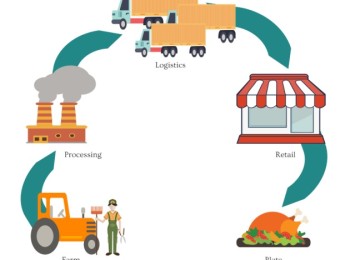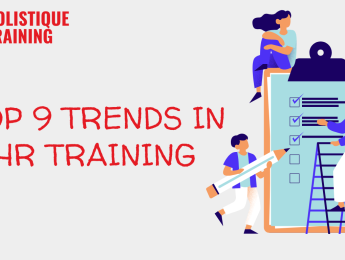- Table of Contents
- Introduction
- What do Talent Trends Mean?
- The Importance of Studying Global Talent Trends
- Strategic Workforce Planning
- Enhancing Competitive Advantage
- Driving Organisational Agility and Resilience
- Fostering Innovation and Growth
- Improving Employee Engagement and Retention
- Aligning with Global Standards and Practices
- Anticipating Future Workforce Dynamics
- Enhancing Talent Acquisition and Retention Strategies
- Supporting Leadership Development
- Building a Culture of Continuous Improvement
- What are the 12 Global Talent Trends in 2024?
- 1. Remote Work Revolution
- 2. Skills-based Hiring
- 3. Diversity and Inclusion Imperative
- 4. Gig Economy Growth
- 5. Employee Well-being Focus
- 6. Continuous Learning Culture
- 7. Tech-driven Transformation
- 8. Remote Onboarding Innovations
- 9. Hybrid Work Models
- 10. Purpose-driven Organisations
- 11. Agile Talent Management
- 12. Data-driven HR Strategies
- How Can the Workplace Address These Trends?
- Embrace Flexibility
- Invest in Technology
- Foster a Culture of Continuous Learning
- Promote Diversity and Inclusion
- Prioritise Employee Well-being
- Leverage Data Analytics
- Align with Purpose
- Implementing These Strategies
- The Role of HR Managers
- 1. Facilitating the Remote Work Revolution
- 2. Championing Skills-based Hiring
- 3. Driving Diversity and Inclusion
- 4. Navigating Gig Economy Growth
- 5. Focusing on Employee Well-being
- 6. Cultivating a Continuous Learning Culture
- 7. Leading Tech-driven Transformation
- 8. Innovating Remote Onboarding
- 9. Implementing Hybrid Work Models
- 10. Building Purpose-driven Organisations
- 11. Enabling Agile Talent Management
- 12. Utilising Data-driven HR Strategies
- What Does the Future of Global Talent Look Like?
- 1. Embracing Remote Work as the New Norm
- 2. Skills Over Credentials
- 3. Diversity and Inclusion as Business Imperatives
- 4. The Gig Economy Continues to Expand
- 5. Employee Well-being Takes Centre Stage
- 6. Lifelong Learning as the Norm
- 7. Technology Drives Transformation
- 8. Hybrid Work Models Gain Traction
- 9. Purpose-driven Organisations Thrive
- 10. Agile Talent Management Practices
- 11. Data-driven Decision-making in HR
- 12. The Rise of Talent Marketplaces
- Statistics on Global Talent Trends
- In Conclusion
Introduction
In a world where the only constant is change, talent acquisition and management dynamics are perpetually evolving. From the rise of remote work to the increasing emphasis on diversity and inclusion, understanding global talent trends has never been more crucial for organisations aiming to stay ahead of the curve. In this comprehensive exploration, we delve deep into the intricacies of global talent trends, deciphering their significance, identifying recent patterns, and outlining strategies for adaptation.
What do Talent Trends Mean?
At the core, talent trends encapsulate the prevailing patterns and shifts in the global workforce landscape. These trends encompass various aspects, from recruitment methodologies to employee preferences and organisational culture. They serve as barometers of industry dynamics, reflecting employers' and employees' evolving needs and expectations in an ever-changing world.
The Importance of Studying Global Talent Trends
Studying global talent trends is crucial for organisations aiming to remain competitive and resilient in the rapidly evolving business landscape. This process entails understanding the shifting dynamics of the workforce, predicting future developments, and implementing strategic measures to harness these changes effectively. The significance of examining global talent trends can be dissected into several key areas, each underscoring the profound impact these trends have on organisational success and sustainability.
Strategic Workforce Planning
One primary reason for studying global talent trends is to enable strategic workforce planning. By understanding current and emerging trends, organisations can forecast talent needs, identify potential skill gaps, and proactively devise strategies to address them. This foresight allows companies to build a robust talent pipeline, ensuring they have the right people with the right skills at the right time. For instance, the increasing emphasis on digital skills necessitates investment in training and development programs that prepare employees for the technological advancements shaping their industries.
Enhancing Competitive Advantage
Organisations that stay ahead of talent trends can gain a significant competitive advantage. By adopting innovative talent acquisition and management strategies informed by these trends, companies can attract and retain top talent more effectively than their competitors. This competitive edge is crucial in industries characterised by rapid change and high demand for specialised skills. For example, organisations that embrace flexible work arrangements in response to the remote work trend can access a broader talent pool and improve employee satisfaction and retention.
Driving Organisational Agility and Resilience
In today’s volatile and uncertain business environment, organisational agility and resilience are paramount. Studying global talent trends equips organisations with the insights to adapt swiftly to changing circumstances. Whether responding to economic shifts, technological disruptions, or evolving employee expectations, understanding talent trends allows organisations to pivot their strategies and maintain operational continuity. For example, the rapid shift to remote work during the COVID-19 pandemic highlighted the importance of agility in adjusting to new work models and maintaining productivity.
Fostering Innovation and Growth
Innovation is often driven by diverse perspectives and new ideas, which can be harnessed by staying attuned to global talent trends. Trends such as diversity and inclusion and continuous learning emphasise the value of creating an inclusive culture and encouraging ongoing professional development. Organisations that prioritise these aspects can foster a more innovative environment where employees feel empowered to contribute their unique insights and skills. This culture of innovation can lead to the development of new products, services, and processes that drive business growth.
Improving Employee Engagement and Retention
Employee engagement and retention are critical factors in organisational success, and understanding talent trends can significantly enhance both. Trends such as employee well-being, flexible work arrangements, and purpose-driven work reflect the changing priorities of the modern workforce. By aligning organisational policies and practices with these trends, companies can create a more fulfilling and supportive work environment. This alignment improves employee satisfaction and loyalty and reduces turnover rates, saving costs associated with recruitment and training.
Aligning with Global Standards and Practices
In an increasingly interconnected world, aligning with global standards and practices is essential for multinational organisations. Studying global talent trends enables companies to understand and integrate diverse cultural and regulatory expectations across regions. This understanding helps organisations build cohesive and compliant global operations, fostering a sense of unity and shared purpose among employees from various backgrounds. For instance, adhering to global standards in diversity and inclusion can enhance the organisation’s reputation and attractiveness as an employer.
Anticipating Future Workforce Dynamics
The future workforce will be shaped by numerous factors, including technological advancements, demographic shifts, and evolving societal values. Organisations can anticipate these changes by studying global talent trends and preparing accordingly. This proactive approach helps mitigate risks associated with workforce disruptions and positions companies to capitalise on emerging opportunities. For example, understanding the implications of automation and AI on job roles can guide strategic investments in reskilling and redeployment programs.
Enhancing Talent Acquisition and Retention Strategies
Effective talent acquisition and retention are critical to maintaining a competitive edge. Organisations can refine recruitment strategies by analysing global talent trends to attract high-calibre candidates. This may involve leveraging digital platforms, utilising data analytics for targeted hiring, and creating compelling employer brands that resonate with top talent. Moreover, understanding trends such as the gig economy and remote work enables companies to develop retention strategies that address the needs and preferences of a diverse workforce.
Supporting Leadership Development
Leadership development is another area where understanding global talent trends can profoundly impact. As organisations navigate complex challenges and opportunities, effective leadership is crucial for guiding teams and driving strategic initiatives. Studying trends such as agile talent management and continuous learning provides insights into the competencies and attributes required for successful leadership in the future. This knowledge can inform leadership development programs, ensuring leaders have the skills and mindset needed to thrive in a rapidly changing environment.
Building a Culture of Continuous Improvement
Finally, studying global talent trends encourages a culture of continuous improvement within organisations. By staying informed about the latest developments in talent management, companies can continuously refine their practices and policies to meet their workforce's needs better. This commitment to ongoing improvement enhances organizational performance and fosters a culture of learning and growth that benefits employees at all levels.
In short, the importance of studying global talent trends cannot be overstated. By understanding these trends, organisations can engage in strategic workforce planning, enhance their competitive advantage, drive innovation and growth, and build resilient and agile operations. Furthermore, aligning with global standards, anticipating future workforce dynamics, and supporting leadership development are all critical outcomes of this study. A deep understanding of global talent trends ultimately empowers organisations to create more dynamic, inclusive, and successful workplaces, positioning them for sustained success in an ever-evolving global marketplace.
What are the 12 Global Talent Trends in 2024?
Understanding global talent trends is essential for organisations that attract, retain, and develop top talent in an ever-evolving business landscape. Let's examine the 12 recent global talent trends in detail, examining their implications and how organisations can effectively respond to them.
1. Remote Work Revolution
The COVID-19 pandemic acted as a catalyst for the widespread adoption of remote work. This shift has fundamentally changed the traditional office-centric work model. Remote work offers employees greater flexibility and work-life balance, which has become a key factor in job satisfaction and retention. Organisations are rethinking their real estate strategies, investing in digital infrastructure, and developing policies to support remote and hybrid work models. Companies that embrace remote work can tap into a global talent pool, reduce overhead costs, and increase productivity by allowing employees to work in environments where they feel most comfortable and effective.
2. Skills-based Hiring
Skills-based hiring focuses on candidates' specific abilities and competencies rather than their educational background or previous job titles. This trend is driven by the need for specialised skills in a rapidly changing technological landscape. Employers increasingly use assessments, portfolios, and real-world tasks to evaluate candidates' capabilities. By prioritising skills over traditional qualifications, organisations can uncover hidden talent, foster a more inclusive hiring process, and ensure that employees possess the exact skills required for their roles. This approach also encourages continuous learning and professional development, as employees are motivated to acquire new skills directly applicable to their job functions. In fact,according toRandstad's 2024 Global Talent Trends Research, 83% of participants prioritise growth potential when evaluating job candidates.
3. Diversity and Inclusion Imperative
Diversity and inclusion (D&I) have moved from being HR buzzwords to essential business strategies. Organisations recognise that diverse teams drive innovation, enhance decision-making, and reflect the demographics of their customer base. This trend encompasses not just gender and ethnicity but also diversity in thought, background, and experience. Companies are implementing D&I initiatives, setting measurable goals, and fostering inclusive cultures where all employees feel valued and heard. Emphasising D&I helps attract a wider range of candidates and builds a positive organisational reputation. Additionally, inclusive environments improve employee engagement and retention, as employees are likelier to stay with companies that respect and support their identities.
4. Gig Economy Growth
The gig economy continues to expand, characterised by the rise of freelancers, contractors, and temporary workers. This trend is fueled by technological advancements and changing attitudes towards work flexibility and entrepreneurship. Organisations benefit from the gig economy by accessing specialised skills on demand, reducing hiring costs, and scaling their workforce according to project needs. However, this trend also presents challenges, such as managing a dispersed workforce and ensuring compliance with labour regulations. Companies must develop strategies to integrate gig workers into their teams, provide adequate support and resources, and foster a sense of belonging even for non-permanent employees.
5. Employee Well-being Focus
Employee well-being has become an organisation's top priority, encompassing physical, mental, and emotional health. The pandemic highlighted the importance of supporting employees' well-being to maintain productivity and morale. Companies are implementing wellness programs, offering mental health resources, and promoting work-life balance through flexible work arrangements. Prioritising well-being enhances employee satisfaction and engagement and reduces absenteeism and healthcare costs. By fostering a culture of well-being, organisations can create a supportive environment where employees feel cared for and motivated to perform at their best.
6. Continuous Learning Culture
A culture of continuous learning is essential in a world where skills and technologies evolve rapidly. Organisations encourage employees to engage in lifelong learning and provide opportunities for professional development through training programs, online courses, and mentorship. This trend supports career growth and helps employees stay relevant in their fields. Companies that invest in continuous learning are better positioned to innovate and adapt to market changes. Additionally, offering learning opportunities boosts employee loyalty and retention, as individuals are likelier to stay with organisations that invest in their personal and professional growth.
7. Tech-driven Transformation
Technological advancements, including artificial intelligence (AI), automation, and big data, are transforming industries and job roles. This trend necessitates a workforce that is tech-savvy and adaptable. Organisations are investing in upskilling and reskilling programs to ensure employees can navigate the digital landscape. Embracing technology also means adopting tools and platforms that enhance productivity, collaboration, and decision-making. Companies that leverage technology effectively can streamline operations, gain insights from data analytics, and stay ahead of competitors. As technology evolves, organisations must remain agile and open to adopting new tools and approaches that drive efficiency and innovation.
Tool/Platform | Enhances Productivity | Facilitates Collaboration | Supports Decision-Making |
Slack | Real-time messaging and notifications | Channels for team communication | Centralised info for quicker decisions |
Trello | Task management and tracking | Shared boards for project tracking | Visual timelines for better planning |
Zoom | Virtual meetings and webinars | Video conferencing for remote teams | Face-to-face for crucial discussions |
Workday | Automated HR processes and analytics | Integrated team workflows | Data-driven insights and reports |
Microsoft Teams | Integrated Office 365 tools | Seamless collaboration on documents | Real-time data sharing and analysis |
Table 1: Tools that enhance productivity
8. Remote Onboarding Innovations
With the rise of remote work, traditional onboarding processes have had to evolve. Remote onboarding involves integrating new hires into the company culture, providing necessary training, and ensuring they feel connected to their teams, all through virtual means. Effective remote onboarding strategies include using digital tools for orientation, creating virtual mentorship programs, and fostering regular communication. Organisations that excel in remote onboarding can ensure new employees are engaged and productive from day one, regardless of their physical location. This trend also highlights the importance of building a strong digital infrastructure and leveraging technology to create seamless and engaging onboarding experiences.
9. Hybrid Work Models
Hybrid work models combine the best of both worlds, offering flexibility while maintaining opportunities for in-person collaboration. Depending on their roles and preferences, employees may split their time between working remotely and being in the office. This trend acknowledges that different tasks and individuals benefit from different work environments. Implementing a successful hybrid model requires clear communication, robust digital tools, and a focus on outcomes rather than physical presence. Organisations that embrace hybrid work can increase employee satisfaction, reduce turnover, and enhance productivity by providing the flexibility to work in a way that suits individual needs and preferences.
10. Purpose-driven Organisations
Employees are increasingly seeking purpose and meaning in their work. Purpose-driven organisations align their business practices with broader societal goals, such as sustainability, social responsibility, and ethical governance. This trend reflects a shift towards valuing impact over profit and attracts employees passionate about making a difference. Companies with a clear mission and values can build stronger connections with their employees and customers, fostering loyalty and engagement. By integrating purpose into their core strategies, organisations can inspire employees to contribute to meaningful work, enhancing motivation and job satisfaction.
11. Agile Talent Management
Traditional hierarchical structures are giving way to more agile talent management frameworks. This trend emphasises flexibility, collaboration, and rapid decision-making. Agile talent management involves cross-functional teams, flatter organisational structures, and a focus on continuous feedback and improvement. Organisations adopting agile practices can respond more quickly to market changes, innovate more effectively, and create a more dynamic work environment. This approach also empowers employees by giving them greater autonomy and opportunities to contribute to various projects, fostering a culture of innovation and adaptability.
12. Data-driven HR Strategies
Data analytics is transforming human resources (HR) by enabling data-driven decision-making. Organisations leverage data to optimise recruitment, enhance performance management, and improve employee experiences. HR can identify trends, predict future needs, and implement targeted interventions by analysing employee engagement, turnover rates, and productivity metrics. Data-driven HR strategies lead to more informed and effective talent management, ultimately enhancing organisational performance. This trend underscores the importance of investing in HR technology and developing the skills needed to interpret and act on data insights.
How Can the Workplace Address These Trends?
Addressing the recent global talent trends effectively requires a multifaceted approach that integrates flexibility, technology, learning, diversity, well-being, data analytics, and purpose into the organisational fabric. Here, we delve into detailed strategies workplaces can adopt to navigate these trends and build a future-ready workforce.
Embrace Flexibility
The shift towards remote and hybrid work models demands organisations rethink traditional work structures and policies. Flexibility should be the cornerstone of modern workplace strategies.
- Remote and Hybrid Work Policies: Develop clear policies that outline expectations, communication protocols, and performance metrics for remote and hybrid workers. This ensures consistency and fairness while accommodating diverse work preferences.
- Flexible Schedules:Allow employees to choose work hours that best suit their personal and professional needs. Flexible schedules can increase job satisfaction and productivity.
- Work-from-Anywhere Models:Explore the feasibility of work-from-anywhere arrangements, especially for roles that do not require physical presence. This can help tap into global talent pools and reduce overhead costs.
Invest in Technology
Technology is the backbone of modern work environments. Investing in the right tools and platforms enables remote work, enhances productivity, and supports data-driven decision-making.
- Digital Collaboration Tools: Implement robust digital tools like Slack, Microsoft Teams, and Zoom to facilitate seamless communication and collaboration among remote teams.
- Cloud-Based Systems: Adopt cloud-based project management and document-sharing platforms like Asana, Trello, and Google Workspace to ensure accessibility and real-time collaboration.
- Cybersecurity Measures: Strengthen cybersecurity protocols to protect sensitive data and ensure secure remote access to company resources.
Foster a Culture of Continuous Learning
In an era of rapid technological advancement and evolving job roles, fostering a culture of continuous learning is essential for maintaining a competitive edge and employee satisfaction.
- Learning and Development Programs: Invest in comprehensive training programs that address current skills gaps and future needs. This includes technical skills, soft skills, and leadership development.
- Online Learning Platforms: Provide access to online courses and resources through platforms like Coursera, LinkedIn Learning, and Udacity. Encourage employees to pursue certifications and advanced training.
- Mentorship and Coaching: Establish mentorship programs where experienced employees can guide and support their less experienced colleagues. This promotes knowledge sharing and career growth.
Promote Diversity and Inclusion
Creating a diverse and inclusive workplace is a moral and business necessity. Diverse teams drive innovation, creativity, and better decision-making.
- D&I Policies and Goals:Develop clear diversity and inclusion policies with measurable goals. Regularly track progress and hold leadership accountable for D&I outcomes.
- Bias Training:Conduct regular bias and sensitivity training to raise awareness and address unconscious biases that may affect hiring promotion and team dynamics.
- Inclusive Hiring Practices: Implement blind recruitment processes and diverse interview panels to ensure fair and unbiased hiring practices.
Prioritise Employee Well-being
Employee well-being encompasses physical, mental, and emotional health. Prioritising well-being leads to higher engagement, productivity, and retention.
- Wellness Programs:Offer comprehensive wellness programs that include fitness activities, mental health resources, and nutritional guidance. Provide access to wellness apps and platforms.
- Mental Health Support: Partner with mental health professionals to offer counselling services and stress management workshops. Create a supportive environment where employees feel comfortable discussing mental health issues.
- Work-Life Balance Initiatives: Encourage employees to take regular breaks, use their vacation days, and disconnect after work hours. Promote policies that support a healthy work-life balance.
Leverage Data Analytics
Data-driven decision-making transforms HR practices, enabling more effective talent management and strategic planning.
- HR Analytics Tools: Invest in HR analytics tools that provide insights into employee engagement, performance, and turnover rates. Tools like Workday, BambooHR, and SAP SuccessFactors can be invaluable.
- Data-Driven Recruitment: Use data to refine recruitment strategies. Analyse past hiring data to identify successful channels, predict candidate success, and reduce time-to-hire.
- Performance Metrics:Implement data-driven performance management systems that provide real-time feedback and track individual and team performance against clear, measurable goals.
Align with Purpose
A sense of purpose is increasingly important to today’s workforce. Purpose-driven organisations attract and retain employees passionate about making a positive impact.
- Mission and Values:Clearly articulate the company’s mission and values. Ensure they are integrated into all aspects of the business, from strategic decisions to daily operations.
- Corporate Social Responsibility (CSR): Develop and promote CSR initiatives that align with the company’s mission. Encourage employee participation in community service and sustainability projects.
- Transparent Communication: Maintain open and transparent communication about the organisation’s goals, achievements, and challenges. Foster a sense of shared purpose and collective effort.
Implementing These Strategies
Successfully addressing these trends requires a holistic approach that involves leadership commitment, employee involvement, and continuous improvement. Here are some practical steps to implement these strategies:
- Leadership Buy-In: Secure commitment from top leadership to drive these initiatives. Leaders should champion flexibility, diversity, well-being, and continuous learning.
- Employee Engagement: Involve employees in the planning and implementation process. Seek their input through surveys, focus groups, and open forums to ensure initiatives meet their needs.
- Pilot Programs: Start with pilot programs to test new initiatives on a smaller scale. Gather feedback, measure impact, and refine before rolling out company-wide.
- Communication and Training:Communicate the importance and benefits of these initiatives to all employees. Provide training and resources to help them adapt to new tools, policies, and practices.
- Monitoring and Evaluation: Continuously monitor the effectiveness of these strategies through regular assessments and feedback loops. Be prepared to make adjustments based on data and employee feedback.
- Celebrating Success:Celebrate milestones and successes in implementing these trends. Recognise and reward employees who contribute to creating a flexible, inclusive, and purpose-driven workplace.
Navigating the complexities of the modern workforce landscape requires a strategic and proactive approach. Organisations can effectively address the latest global talent trends by embracing flexibility, investing in technology, fostering continuous learning, promoting diversity and inclusion, prioritising employee well-being, leveraging data analytics, and aligning with purpose. These efforts will enhance organisational performance and create a dynamic, inclusive, and supportive work environment that attracts and retains top talent. As we move forward, staying attuned to these trends and continuously evolving will be key to building a resilient and future-ready workforce.
The Role of HR Managers
Human Resources (HR) managers play a pivotal role in navigating the complexities of modern talent management. As the landscape evolves with new trends and challenges, HR managers must adapt and lead their organisations toward sustainable success. Let's explore the multifaceted roles of HR managers in addressing each of the 12 recent global talent trends.
1. Facilitating the Remote Work Revolution
HR managers are at the forefront of the remote work transition, tasked with developing and implementing policies that support remote and hybrid work models. They ensure employees from various locations have the tools and resources to work effectively. HR managers help maintain productivity and engagement among remote workers by fostering a culture of trust and accountability. They also play a key role in rethinking real estate strategies and adjusting company policies to accommodate the new work environment.
2. Championing Skills-based Hiring
As organisations shift towards skills-based hiring, HR managers are crucial in redefining recruitment processes and criteria. They design assessment tools and interview techniques focusing on candidates' abilities and competencies. By prioritising skills over traditional qualifications, HR managers can uncover hidden talent and foster a more inclusive hiring process. This approach ensures that employees possess the necessary skills for their roles and encourages a culture of continuous learning and professional development.
3. Driving Diversity and Inclusion
Diversity and inclusion (D&I) have become essential business strategies, and HR managers are instrumental in implementing and championing these initiatives. They develop D&I policies, set measurable goals, and create inclusive cultures where all employees feel valued and heard. HR managers also conduct bias training and ensure that recruitment and promotion practices are fair and unbiased. By emphasising D&I, HR managers help attract a wider range of candidates and build a positive organisational reputation, ultimately improving employee engagement and retention.
4. Navigating Gig Economy Growth
The gig economy continues to expand, characterised by the rise of freelancers, contractors, and temporary workers. HR managers are responsible for integrating gig workers into their teams, providing adequate support and resources, and ensuring compliance with labour regulations. They develop strategies to manage a dispersed workforce and foster a sense of belonging even for non-permanent employees. By effectively managing gig workers, HR managers help organisations access specialised skills on demand and scale their workforce according to project needs.
5. Focusing on Employee Well-being
Employee well-being encompasses physical, mental, and emotional health. HR managers prioritise well-being by implementing wellness programs, offering mental health resources, and promoting work-life balance initiatives. They create supportive environments where employees feel cared for and motivated to perform at their best. By fostering a culture of well-being, HR managers enhance employee satisfaction and engagement, reduce absenteeism, and lower healthcare costs.
6. Cultivating a Continuous Learning Culture
A culture of continuous learning is essential in a world where skills and technologies evolve rapidly. HR managers encourage lifelong learning and provide opportunities for professional development through training programs, online courses, and mentorship. They support career growth and help employees stay relevant in their fields. By investing in continuous learning, HR managers position their organisations to innovate and adapt to market changes, boosting employee loyalty and retention.
7. Leading Tech-driven Transformation
Technological advancements, including artificial intelligence (AI), automation, and big data, are transforming industries and job roles. HR managers are key in upskilling and reskilling employees to ensure they can navigate the digital landscape. They also adopt tools and platforms that enhance productivity, collaboration, and decision-making. By leveraging technology effectively, HR managers help streamline operations, gain insights from data analytics, and stay ahead of competitors. This requires them to remain agile and open to adopting new tools and approaches that drive efficiency and innovation.
8. Innovating Remote Onboarding
With the rise of remote work, traditional onboarding processes have had to evolve. HR managers are responsible for developing effective remote onboarding strategies that integrate new hires into the company culture, provide necessary training, and ensure they feel connected to their teams. By using digital tools for orientation and creating virtual mentorship programs, HR managers ensure new employees are engaged and productive from day one, regardless of their physical location. This highlights the importance of building a strong digital infrastructure and leveraging technology to create seamless and engaging onboarding experiences.
9. Implementing Hybrid Work Models
Hybrid work models combine the best of both worlds, offering flexibility while maintaining opportunities for in-person collaboration. HR managers design and implement hybrid work policies that accommodate different roles and preferences. They focus on clear communication, robust digital tools, and a results-oriented approach to ensure success. By embracing hybrid work, HR managers increase employee satisfaction, reduce turnover, and enhance productivity by providing the flexibility to work in ways that suit individual needs and preferences.
10. Building Purpose-driven Organisations
Employees are increasingly seeking purpose and meaning in their work. HR managers help align business practices with broader societal goals, such as sustainability, social responsibility, and ethical governance. They ensure that the company’s mission and values are articulated and integrated into all aspects of the business. By fostering purpose-driven work environments, HR managers attract and retain employees passionate about making a difference, enhancing motivation and job satisfaction.
11. Enabling Agile Talent Management
Traditional hierarchical structures are giving way to more agile talent management frameworks. HR managers are crucial in implementing agile practices, emphasising flexibility, collaboration, and rapid decision-making. They support cross-functional teams, flatter organisational structures, and continuous feedback and improvement. By adopting agile practices, HR managers help organisations respond quickly to market changes, innovate more effectively, and create dynamic work environments. This empowers employees with greater autonomy and opportunities to contribute to various projects, fostering a culture of innovation and adaptability.
12. Utilising Data-driven HR Strategies
Data analytics is transforming human resources (HR) by enablingdata-driven decision-making. HR managers leverage data to optimise recruitment, enhance performance management, and improve employee experiences. By analysing metrics such as employee engagement, turnover rates, and productivity, they identify trends, predict future needs, and implement targeted interventions. Data-driven HR strategies lead to more informed and effective talent management, ultimately enhancing organisational performance. This underscores the importance of investing in HR technology and developing the skills needed to interpret and act on data insights.
HR managers are indispensable in steering organisations through the evolving talent landscape. Proactively addressing these trends, they help build resilient, innovative, and inclusive workplaces that thrive in the dynamic global marketplace.
Table 2: KPIs for HR Managers in Relation to Global Talent Trends
What Does the Future of Global Talent Look Like?
As we peer into the future of global talent, it's evident that the landscape will continue to evolve, driven by technological advancements, demographic shifts, and changing societal norms. Understanding these trends can help organisations prepare for the challenges and opportunities.
1. Embracing Remote Work as the New Norm
Remote work is here to stay, reshaping how we view traditional office setups. The future of global talent will see a continued embrace of remote and hybrid work models as organisations recognise the benefits of flexibility, cost savings, and access to a broader talent pool. This shift will require reimagining workplace policies, infrastructure, and culture to support remote collaboration and ensure employee well-being.
2. Skills Over Credentials
The emphasis onskills-based hiring will intensify as employers prioritise specific competencies over traditional qualifications. As technology evolves and industries undergo rapid transformation, the future of global talent will favour individuals who possess adaptable skills, critical thinking abilities, and a willingness to learn. Continuous upskilling and reskilling will become essential for staying competitive in the job market.
3. Diversity and Inclusion as Business Imperatives
Diversity and inclusion will move beyond mere compliance to become fundamental drivers of organisational success. The future of global talent will see companies doubling down on D&I initiatives to reflect the demographics of their customer base and harness the power of diverse perspectives and experiences. Inclusive cultures that value authenticity, belonging, and equity will attract top talent and foster innovation.
4. The Gig Economy Continues to Expand
The gig economy will continue its upward trajectory, offering flexibility, autonomy, and entrepreneurship opportunities. The future of global talent will see a rise in freelancers, independent contractors, and gig workers who seek diverse experiences and income streams. Organisations must adapt by creating ecosystems that integrate gig workers seamlessly into their teams and provide opportunities for skill development and career progression.
5. Employee Well-being Takes Centre Stage
Employee well-being will emerge as a top priority for organisations seeking to attract and retain talent in an increasingly competitive landscape. The future of global talent will prioritise holistic wellness initiatives that address physical, mental, and emotional health. Organisations prioritising well-being will benefit from higher productivity, engagement, and employee loyalty.
6. Lifelong Learning as the Norm
The future of global talent will be characterised by a culture of continuous learning and skill development. Lifelong learning will no longer be a luxury but a necessity for staying relevant in a rapidly changing world. Employers will invest in learning and development programs that offer employees opportunities to acquire new skills, adapt to emerging technologies, and future-proof their careers.
7. Technology Drives Transformation
Technology will continue to disrupt industries and reshape the future of work. Artificial intelligence, automation, and data analytics will become ubiquitous tools for streamlining processes, enhancing productivity, and driving innovation. The future of global talent will require individuals who are tech-savvy, adaptable, and willing to embrace change.
8. Hybrid Work Models Gain Traction
Hybrid work models will become the new standard, offering the best remote and in-person collaboration. The future of global talent will see organisations adopting flexible work arrangements that accommodate individual preferences and business needs. This hybrid approach will require investments in digital infrastructure, communication tools, and leadership practices that support remote and distributed teams.
9. Purpose-driven Organisations Thrive
Purpose-driven organisations will attract and retain top talent by aligning business objectives with societal impact. The future of global talent will see companies prioritising environmental sustainability, social responsibility, and ethical governance. Employees will seek organisations that share their values and offer opportunities to contribute to meaningful work that makes a positive difference in the world.
10. Agile Talent Management Practices
Traditional hierarchical structures will give way to more agile talent management practices. The future of global talent will see organisations embracing cross-functional teams, flatter organisational structures, and continuous feedback loops. Agile talent management will empower employees with greater autonomy, flexibility, and opportunities for professional growth, driving innovation and adaptability.
11. Data-driven Decision-making in HR
Data analytics will revolutionise human resources, enabling data-driven decision-making across the talent lifecycle. The future of global talent will see HR departments leveraging data to optimise recruitment, performance management, and employee engagement. Predictive analytics will enable organisations to anticipate future talent needs and develop proactive talent acquisition and retention strategies.
12. The Rise of Talent Marketplaces
Talent marketplaces will emerge as platforms for connecting employers with a diverse range of talent on demand. The future of global talent will see individuals showcasing their skills, expertise, and portfolio of work on digital platforms, bypassing traditional recruitment processes. Talent marketplaces will offer opportunities for gig work, project-based assignments, and remote collaboration, democratising access to talent and opportunities.
In summary, the future of global talent will be shaped by a dynamic interplay of technological innovation, demographic shifts, and evolving workplace norms. Organisations that embrace flexibility, diversity, continuous learning, and purpose-driven practices will be best positioned to thrive in this rapidly changing landscape. By staying agile, adaptive, and forward-thinking, businesses can attract, retain, and develop top talent in an increasingly interconnected and competitive world.
Statistics on Global Talent Trends
Recent data highlights the significant impact of proactive talent management and development on organisational success. According toLinkedIn, companies that excel in developing their employees' skills have observed a 15% higher internal mobility rate than those that lag in this area. Additionally, many organisations are prioritising enhancements in various HR practices: 41% are redesigning work processes to incorporate AI and automation, 40% are investing more in retirement and financial well-being benefits, and 38% are improving both physical and mental health benefits as well as modernising pay practices, according toMercer’s 2024 Global Talents Trends Study. These investments reflect a broader trend towards creating more supportive, flexible, and future-ready workplaces.
In Conclusion
The importance of studying global talent trends cannot be overstated. By understanding these trends, organisations can engage in strategic workforce planning, enhance their competitive advantage, drive innovation and growth, and build resilient and agile operations. Furthermore, aligning with global standards, anticipating future workforce dynamics, and supporting leadership development are all critical outcomes of this study. A deep understanding of global talent trends ultimately empowers organisations to create more dynamic, inclusive, and successful workplaces, positioning them for sustained success in an ever-evolving global marketplace.
Additionally, to stay ahead in the rapidly evolving landscape of human resources, consider enrolling in our course "Future Changes in Human Resources: AI in a Post Covid-19 World." Explore how artificial intelligence is reshaping HR practices in the wake of the pandemic, and gain insights into leveraging AI technologies to navigate future challenges and opportunities in talent management.


























